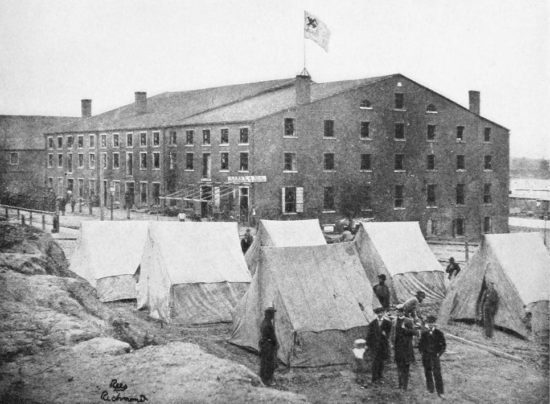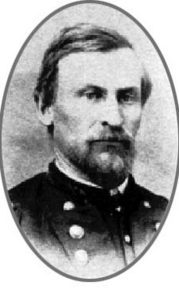Ironton Register 22 March 1888 – Thomas James was a bugler. He went out in Capt. Powell’s Company of the 2nd Virginia Cavalry and served there as a bugler then when the captain became colonel.
Tom was advanced to Regimental Bugler and when the colonel commanded a brigade, Tom became the Brigade Bugler. So through all the vicissitudes of war, Thomas James did Gen. Powell’s blowing; not in the ordinary civil meaning of the term but in that military sense which related to the movements of troops whether in the spectacular drill, the wearisome march or the crimson battle.

So, through all the ups and downs of war, Thomas James’ experience was alongside General Powell except when the latter was in Libby Prison, Tom managed to keep out.
When the Register scribe asked him for his closest call, Tomas James shook his head and didn’t know, but thinking a moment, he said:
“I really suppose that the second fight at Wytheville was where we came the nearest to getting into serious trouble. I don’t know as you would call it an escape, but it was missing a chance to get a sound thrashing.
We went down to Wytheville, you recollect, when [Major] Crook[photo on right] made his dash on Newbern Bridge, to attract the attention of the rebs to that region. When we arrived within a few miles of Wytheville, we came across a reb force and we formed in line of battle. We moved along cautiously to a point where we intended to make a charge. I kept close to Powell, expecting every moment to sound the charge. I had my bugle ready for the blast, but just then came an order to crawl out of there.

“Well now, we didn’t crawl out, nor proceed with any deliberation for just as soon as the rebs saw we weren’t coming, they opened out on us, and such a dose as they gave us makes me shiver to think of. You see the rebs had arranged a nice little ambush for us.
Just ahead of us was a defiled [?] through which we were to charge and that was thick with rebs all up the sides of the hills. Had we gotten in there, I don’t think many of us would have gotten out. We found this fact out just before the order to charge was to be given. It was toward night when we got out and to cover up our retreat, we built fires as if we were going into camp, but the fact is, we got away from there as soon as possible.
“But I must tell you of another little scrape, that was narrow and amusing. It occurred, as I recollect in the 19th of September fight at Winchester. Our regiment was posted somewhere, just how or where I can’t remember, but I do remember that Gen. Powell rode some distance ahead of the line to reconnoiter with a view to a forward movement.
I was with him, of course. We had gone about 100 yards when we stopped to look about. A short distance ahead of us, we saw a squad of cavalrymen in blue, and Powell said, ‘There are some of our boys. Sound forward.’ ‘Look here, general,’ said I, ‘there’s something strange about them fellows.
They look like rebs in our clothes.’ ‘No, they ain’t,’ said the general, ‘let the regiment move forward.’ All right I thought to myself – he’s boss and I’ll blow ‘forward.’ So, I raised the bugle to my lips and blew but I didn’t get through, although I didn’t stop to get through. Neither did the general.
“Instead of the regiment coming forward to meet us, we rushed backward to meet it. You see, just as I started on the blast of the bugle, that squad just ahead of us, probably not over 100 – 150 yards, turned their pops on us and such a whistle of bullets about our ears I don’t think I ever heard in battle.
My, how we did scamper! The general just laid himself out, and I kept even with him. That was the first time I ever blew ‘forward’ for ‘light out of her!’ Though it was at that moment a dangerous predicament, I laughed heartily when we got back to the regiment.
I don’t think those rebs saw us until I blew that horn, and then they drew a bead on us. I expect as soon as they fired, they flew in the other direction, but we didn’t stop to see about that, either. So that’s all the ‘Narrow Escape’ I have for you now,” Thomas James said.

0 Comments